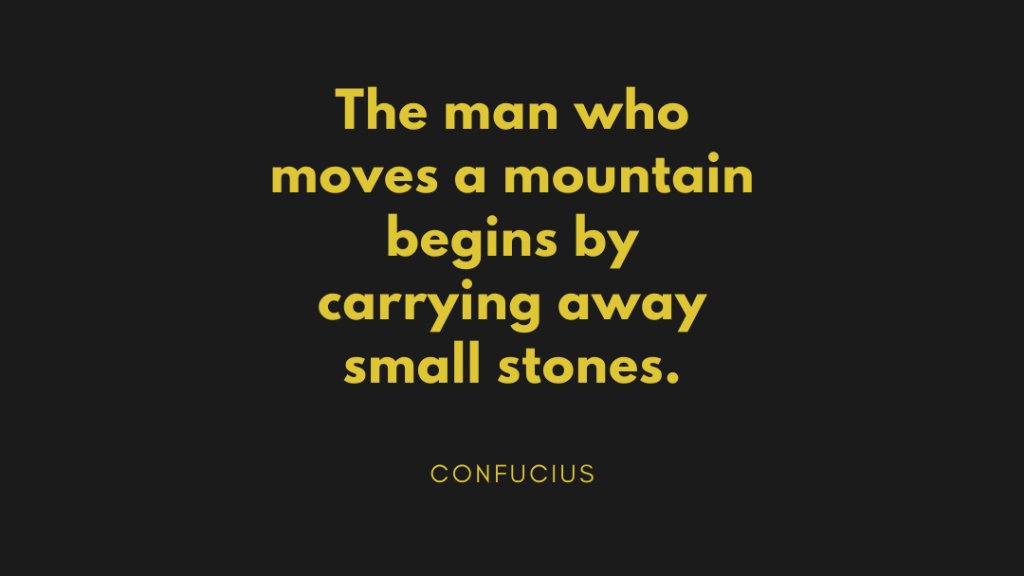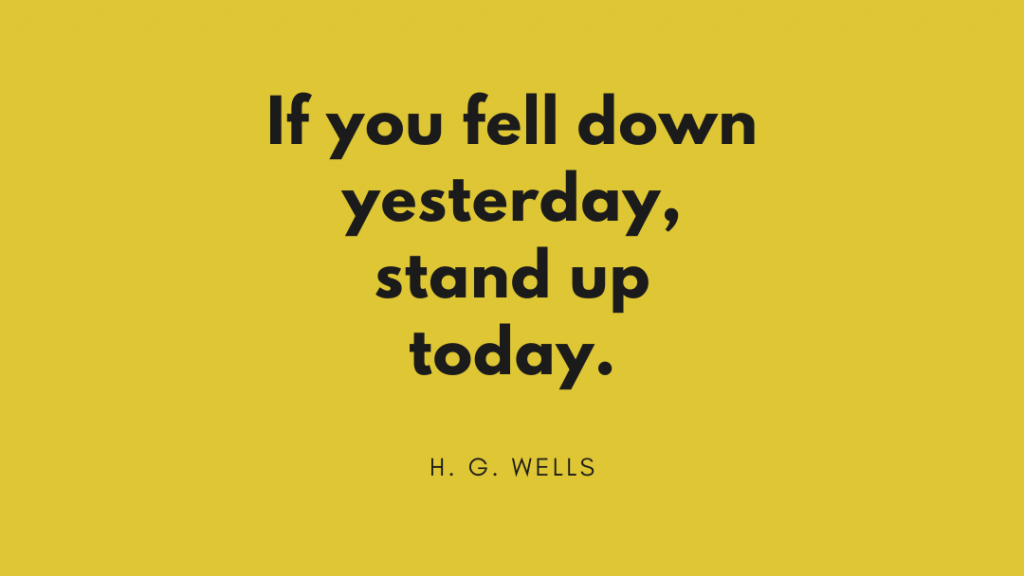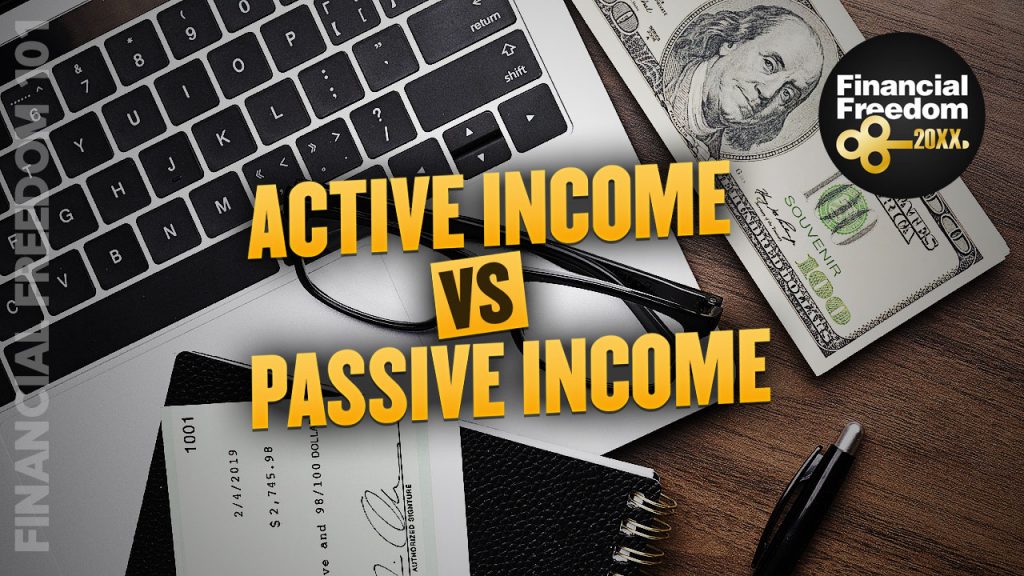Financial Freedom 101
Financial freedom is the consequence of the act of being smart with your money in the long run. Simple as that. But where to start? What does it mean to be smart with your money? Well, you came to right place. Let’s learn the basics together! I am here to help you.
 Psst… for fast track you can learn advanced tips about financial freedom at this premium course hosted by Robert Kiyosaki. It is not 100% free, but it is good! Ok lets continue…
Psst… for fast track you can learn advanced tips about financial freedom at this premium course hosted by Robert Kiyosaki. It is not 100% free, but it is good! Ok lets continue…
How To Start Your Financial Freedom Journey
We all have to start from beginning. It will feel pain to think about all the tasks ahead. But trust me this journey toward financial freedom can be fun. Actually it will be fun if you decide so. Things don’t happen to you, things happen for you. Are you ready to enjoy? Please answer: yes I am! 🙂 Let’s check out financial freedom 101…

Before doing anything else you must think about yourself. This is the phase you can’t skip! You must think of what are your needs and wants in life. Based on them, you should set your financial goals. Why? Because many things affect you financially. If your financial situation is always bottleneck between your needs and wants, you are not financially free.
Define Your Needs And Wants
- What do I need in life…
- Food (what type of food you like)
- Home (what kind of)
- Car (yes, no, what kind of)
- Education
- etc.
- What do I want in life…
- Second home in Mexico
- High class education for kids
- Fancy sport car
- Lots of traveling
- Possibility to decide when I am working or am I working at all
- I want to be the one to ensure significant charity for dogs by setting up a foundation for abandoned puppies
- etc.
Define Your Financial Goals
Once you know your wants and needs it is time to think your financial goals. Ask from yourself: “What kind of financial situation is required so that I can finance my wants and needs“. Once you know the answer. Ask another question: “When is the time I want to be in that situation”.
Thats it. Now you should know how much money or assets is required to fulfil your needs and wants. You also know when you would like to have that money and assets. Something like…
- $ 3000 passive income each month to be able to pay my wants
- I also need flexible job with $ 3000 salary to pay my needs
I aim to get these before I am 40 so I have 10 years time. Remember the more time you have the more likely you will reach your results. If you have short amount of time you must take more risks. On the other hand…

Next step, well the steps that help you to reach your goals! If you prefer to watch the video instead of reading, you can watch it here. Ok let’s continue…

What Are The Steps To Achieve Financial Freedom?
The sooner you learn and start doing, the sooner you see the results. If you want to achieve financial freedom, achieving financial freedom in your life should be one of your main goals. That is the step before all other steps.
Step 1: Set Achieving Financial Freedom As Your Main Goals!
Financial freedom is not about getting a lot of money by making different choices in life without commitment and worries at all. Financial freedom involves strategic planning, and you may also have to face several challenges. You must be ready for the set backs and be consistent!

Step 2: Determine Your Spendings In Ideal Situations
Knowing your spending routines will enable you to start spending less than what you make and using your money on the things that matter the most. Things that should matter the most at this point are assets.
You can start your “asset hunt” by making a budget at the beginning of each month. Creating a budget may seem challenging if you are not someone who seriously wants to get financial freedom. It means that you can achieve financial freedom only if you want it and are ready to commit to it. If you truly want to achieve financial freedom, you can create a budget and keep track of it.
A budget helps you to know the difference between your earnings and spending. After making a budget, it will be challenging for you to stick to it and avoid unnecessary expenses. Don’t stop budgeting even if you fail. Try to learn from failure.
Spending more than you earn can only make you bankrupt, but one month doesn’t count in the long run. You will find yourself in financial trouble after years of failure. Remember that what really matters is how much money you keep, not how much money you earn.
Step 3: Get Assets That Offer You A Regular Income Stream
You must put your money to work for you. If you can make money while you sleep, that is a good sign! You must have more assets than liabilities, as your assets should pay your liabilities.
Start investing in the stock market, real estate, or in anything that can potentially make money for you while you sleep. The passive income stream from these investments will help you in the long term. In reality, it may not look easy as success takes time. Have the patience to see results, as results don’t come overnight!
Step 4: Pay Off Your Bad Debt As Soon As Possible
You need to take some severe measures to pay off your bad debt as soon as possible.
Now, most of you may ask how to pay off the debt? Well, there are a couple of ways to deal with it. Start with a debt plan and find ways to decrease your overall expenses. Limit these extra expenses and start paying off your debt. Pay the debt that has the highest interest first. Simple as that! If it is not in practice, simply try to make your life simpler. Say to yourself: less is more, and follow that rule in your life. You start to realize that having less makes it possible to pay your debt faster.
Do you know the best way to deal with all this? Have you heard about the term ‘Earth hour’? We turn the lights off and sit in a single room for one hour to save electricity.
Likewise, go for a “no-spend month”. You will not be making any expenses this month and cut all the extra and additional spending to pay off the debt.
Step 5: Prepare For Peaks And Valleys In Life
Future planning is also essential because we know our lives are full of peaks and valleys.
Physical or emotional challenges are a part of our lives, and we should be ready for them. You need to have some useful resources for the future to protect you and your family in the future.
Not having some cash for future planning can bring you close to the rough times, and this is when you will be spending extra from your income.
These are emergency funds that prove to be the most valuable resources in case of emergencies. This cash will help you deal with the rough times, and you will also move towards achieving financial freedom with this savings. So make sure you have an emergency fund that is align with your risk tolerance. For example save the amount that will pay your three month spendings.
Step 6: Smart Personal Finance Habits And Financial Intelligence
Smart personal finance habits are the best investments towards a promising future. These habits help you enjoy the state of financial freedom by managing your money, paying off your debts, and saving for emergencies.
To be able to constantly make more money while you sleep you must train your financial intelligence. How? This premium course hosted by Robert Kiyosaki is great place to start from!
Well thats it! With these steps you are much closer to financial freedom than before. Remember that consistency is king! Lets check out more fundamentals. After all the whole thing is to understand simple things deeply.

Active Income Vs. Passive Income
“There is no security in a job, even a high-paying one. Be smart and don’t rely on just one source of income”
– Ray Higdon.
When it comes to active income vs. passive income, you might know what it means, but do you understand what the two truly mean to you and your financial success? Are you getting by with only one source of income, or are you reaching financial freedom with multiple income streams?
If you want to optimize your profits in the long run, you need to make sure you understand the differences between active income and passive income.
What Is Passive Income
Passive income is defined as consistent income that requires little to no effort to maintain. For the most part, you are uninvolved. It’s suggested you diversify your portfolio with various income streams and not stick to only one thing to maximize the benefits of earning a passive income.
A million different get-rich-quick scams promise income without effort, but the truth is that producing reliable passive income takes time and effort. Does this imply that it isn’t worthwhile? Most certainly not!
You can learn advanced tips about how to produce reliable passive income at this premium course hosted by Robert Kiyosaki.
What Is Active Income
Active income is income earned as a result of services rendered. Commissions, salaries, and wages are all included.
To receive active income, you must do something to receive it. You must put up some effort and time to earn that money.
Everyone begins with an active income. But, you must create passive income to achieve long-term financial freedom.
Why It Is Important To Have Both
One problem that you will face with active income is that we all have only 24 hours per day to spend. Since active income is typically based on the hours done, it will be a bottleneck at some point. Passive income can take years to create, whereas active income allows you to make money in a short amount of time.
Unlike passive income, which takes years to generate, active income ensures a steady revenue stream and allows you to make money in a short and defined period, such as your paycheck. In many cases, an active source of income is required to build the groundwork for a passive source of income.
One downside of passive income is that you must often put lots of effort upfront, but if you create something highly valuable and can bring passive income, there are no limits on income like in active income, which relies on the hours per day.
How Passive Income Will Help On A Journey To Financial Freedom
What difference does it make which one you are earning if it’s all income? You’ve probably asked yourself this question several times in your life.
The answer is that it is very crucial to have a passive income.
A question you should be asking yourself is, “What is the most typical reason investors give for getting into real estate investing or continuing to do so?” And the answer is financial freedom.
Those wanting financial freedom understand it as being able to use real estate as a means to ultimately break free from their current job and no longer have to work for a living.
So, let’s talk about financial freedom.
Simply put, financial freedom means that you don’t have to work to make money (if you don’t want to). Once you have achieved financial freedom, you are free to do whatever you want without constantly worrying about money.
How does that appear to you? Maybe you want to travel more, go back to college, or plan to get up early and spend your mornings fishing. Or perhaps you already have an enjoyable work position that you want to continue doing. With financial freedom, you can be free to work without the need to work for money.
You must let your active income work for you in the form of passive income to create real, long-term wealth! And that leads to another topic…

It’s Not About How Much Money You Make, But How Much Money You Keep
“It’s not how much money you make, but how much money you keep, how hard it works for you, and how many generations you keep it for.”
– Robert Kiyosaki
Money is quickly lost when it is not supported by financial intelligence. Most people fail to realize that it is not about how much money you make in life, but it all boils down to how much money you keep.
In Robert Kiyosaki’s book, “Rich Dad, Poor Dad,” he gives an excellent example of lottery winners who win millions of dollars at a time. Due to being financially illiterate, they spend all their new money, thinking it will last forever. But the money soon runs dry, and they are left with nothing. To overcome this, they need to learn money management skills and improve their financial intelligence to keep their money and last for generations.
We also have a video of 10 Celebrities Who Were Rich And Famous Before They Went Broke. If this doesn’t proof that “It’s Not About How Much Money You Make, But How Much Money You Keep” then what does?
Money Management – Financial Freedom 101 Best Friend
Money management refers to how you manage every aspect of your finances, from creating a budget to choosing where each paycheck goes to defining long-term goals and selecting investments to help you achieve those goals. Money management entails saying “no” to all purchases and creating a strategy that allows you to say “yes” to the things that matter most to you.
Don’t be a slave to money, but instead, make it work for you. One of the best ways to do this is by paying yourself first. When we talk about paying yourself, we are actually referring to how much of your income you are putting away.
Every time you get paid, set aside a certain percentage of your income. It’s essential that you do this before you pay your rent, taxes, or anything else. One way to pay yourself first is to automate your savings by setting weekly or monthly transfers from your checking account to your savings or investment account.
No matter how much money you make, you should save money for the future and emergencies. The main objective is for you to get started and not waste another day of saving. The percentage of your income you choose to save might range anywhere from 1% to 20%. It will all depend on how much you can afford and what your short and long-term financial goals are.
Conclusion Financial Freedom 101
Whoa what an information package! I hope that this helps you a lot on your journey towards financial freedom. As a recap keep your focus on these:
- Know your wants and needs and then set goals
- Pay yourself first
- Hunt passive income
- Learn financial intelligence
- Remember: “It’s not how much money you make, but how much money you keep, how hard it works for you, and how many generations you keep it for.”
- Be consistent
- To learn even more check out this premium course hosted by Robert Kiyosaki
- Boost your financial freedom motivation
Thank you for reading! Please let us know your own thought, tips and tricks!
Please remember to check our videos: